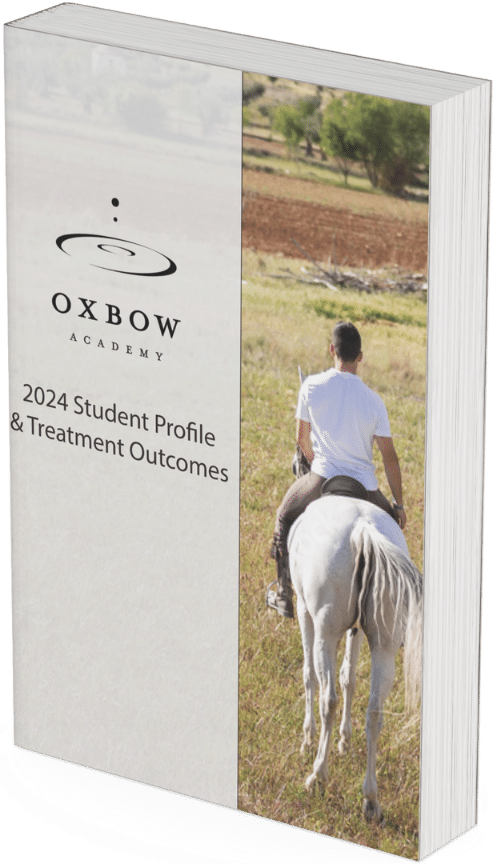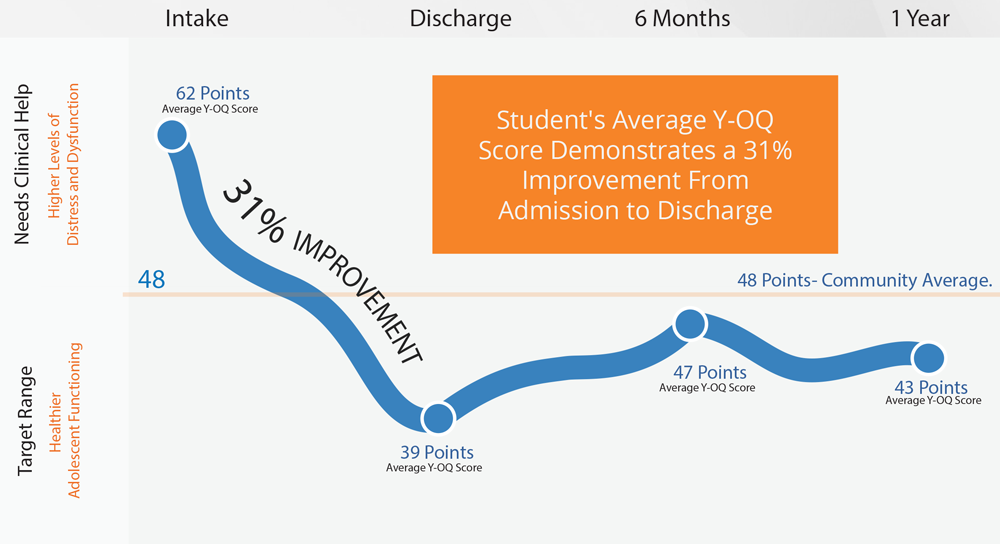
Do Residential Treatment Centers Work? Our Outcomes Say YES!
As a parent, facing your teenager's mental health crisis can be overwhelming. We understand the uncertainty and worry that comes with it as you ask, "Do residential treatment centers work?" At Oxbow Academy, we want you to know that there is hope. Our most recent outcomes paint a vivid picture of transformation and recovery. It's not just about statistics; it's about the incredible journeys of healing and growth that we've witnessed. We invite you to review our outcomes below and explore the stories of resilience, hope, and success families experienced at Oxbow Academy.
At Oxbow Academy, our dedication to providing the highest quality care for your teenager is unwavering. To achieve this, we harness the transformative potential of outcomes. Beyond mere statistics, outcomes play a pivotal role in client progress tracking, program evaluation, and continuous improvements. See how Oxbow Academy uses outcomes in the program and download your copy of our most recent outcome study.

Oxbow Academy Annual Outcomes Report
Delve into this comprehensive report detailing our utilization of outcomes, summarizing our achievements, and outlining our forthcoming research pathways.

Achieving Academic Excellence at Oxbow Academy
This report highlights the significant academic progress made by students at Oxbow Academy during the 2022-2024 school years, demonstrating how the program helps students catch up to their peers despite previous academic challenges. You can download the full report to see the detailed outcomes and learn more about how Oxbow Academy students achieve more growth on their overall RIT scores compared to the national average.

Maximizing Your Insurance Benefits
When your child is in crisis, the last thing you need is the added stress of dealing with complex insurance processes. Our dedicated in-house Insurance Utilization Team is here to help. We understand that behind every claim is a family seeking help. Our team works tirelessly to ensure you receive the support you deserve, providing compassionate guidance throughout the insurance process.
Overview of Oxbow Academy
Outcomes and Key Findings
Oxbow Academy students take an internationally respected, scientifically validated survey when they begin treatment; they take the same survey when they leave. A comparison of these two time-points confirms statistically significant behavior change between intake and discharge.
Outcome Tools
Outcomes and Key Findings
Youth Outcomes Questionnaire
The Average Y-OQ Score of Students Shows a Remarkable 31% Improvement From the Time of Admission to the Point of Discharge.
Youth Outcomes Questionnaire (Y-OQ-2.01)

Student Diagnoses + Symptoms
Students At Oxbow Academy Programs Struggle With The Following Issues
66% - Impulse Control Disorder
17% - Anxiety Disorder
12% - Behavioral Disorder
11% - ADHD
8% - Substance Use Disorder
Student Feedback
Outcomes and Key Findings
At discharge, 98% of students reported much improvement as a result of finishing the program.
At discharge, 94% of students reported feeling that their therapeutic needs were being met while at Oxbow Academy.
At discharge, 93% of students reported that they felt like Oxbow Academy helped them and their families.
* The research methodology includes the administration of an automated survey to all Students at predetermined intervals during treatment for data gathering purposes.
Parent Feedback
Outcomes and Key Findings
At discharge, 94% of parents reported they would recommend this program to a friend if they had a child needing this level of treatment
94% of parents reported that they felt part of the treatment process.
96% of parents reported being satisfied with the quality of treatment they received at Oxbow Academy
* The research methodology includes the administration of an automated survey to all Parents at predetermined intervals during treatment for data gathering purposes.
